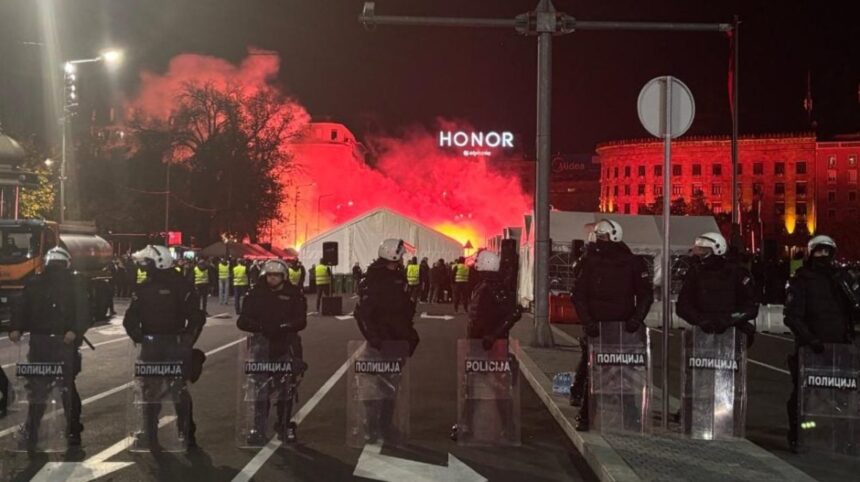What once paraded under the banners of “Greater Serbia” has now decayed into Ćaciland — a fenced-off parody of a nation, governed by the same greed, deceit, and ultranationalist delusions that destroyed Yugoslavia and continue to poison Serbia today.
Back in the 1990s, the radicals shouted their war cries: “Ogulin, Karlovac, Karlobag, Virovitica!” as if chanting those names could somehow justify mass displacement, bloodshed, and theft. There were even slogans like “Serbia to Tokyo,” absurd fantasies designed to inflame pride and disguise plunder. Because that’s what Serbian ultranationalism always was not patriotism, but a criminal enterprise wrapped in a flag.
Behind the language of conquest stood the same mission: conquer power, loot the people, and enrich the chosen few. That formula has never changed. Whether through war, privatization, or corruption, Serbia’s so-called “patriots” have systematically stripped their own country bare. The only thing “greater” about Greater Serbia was the greed of those leading it.
Today’s rulers the ideological heirs of those radicals carry the same torch of deception. They build walls around protests, censor journalists, and glorify war criminals while the people sink deeper into poverty. They chant “Kosovo is the heart of Serbia,” yet sell off the country piece by piece from Kalemegdan to Belgrade Waterfront to foreign investors and offshore accounts. They drape themselves in flags to distract from the fact that they’ve robbed Serbia of its dignity, its freedom, and its future.
The latest grotesque symbol of that decay is Ćaciland a self-imposed ghetto of loyalty and obedience, fenced in the middle of Belgrade, guarded by police and propaganda. It’s not just a “tent city” — it’s the physical manifestation of a political disease that has plagued Serbia for decades. A reminder that what began as “Greater Serbia” has ended as a shrinking, fearful parody of a nation, isolated from reality and enslaved by its own lies.
For thirty-five years, the same radicals now wearing suits instead of uniforms have stolen everything: lives, history, culture, truth. Serbia has been robbed of its soul, replaced with nationalist hysteria and manufactured fear.
The Kreman prophecy once spoke of “all Serbs under one plum tree.” The tragic irony? That plum tree has been sold too just like everything else.
So what remains from Greater Serbia? Nothing but Ćaciland a broken remnant of lies, guarded by police and ruled by a man who mistakes power for destiny. Yet beneath that rubble, a new Serbia is struggling to be born one that rejects dehumanization, nationalism, and fear.
That Serbia will not wave flags for tyrants or worship false heroes. It will not chant for “Greater” anything. It will simply demand what has been stolen truth, justice, and humanity.







